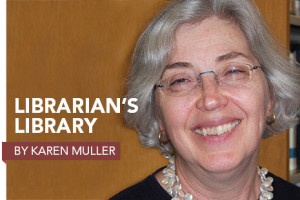
Three-dimensional printers, apps, social networks. It’s easy to get caught in the trap of responding to the newest technology or educational stratagem when planning your program of service for youth and their families. Instead, start by thinking about the impact you want to have on children and teens and develop services that support those. For example, instead of focusing on bringing youth and families into the library because you have a 3D printer, focus on what you want young people to learn by using those printers. Ask yourself what impact the library can have on the lives of young people by making these printers available. The answer to that question will help you to define services related to that technology.
Impacts don’t rely on the use of specific tools. Staff members may need to integrate new tools in order to reach goals, but a program or service should not be built around tools. Rather, tools of a variety of kinds are brought in to achieve predetermined impacts or what are often referred to as “outcomes.” That means no matter what new thing comes along, library staffers are able to make good choices about what will best serve youth and families because they have already determined long-term outcomes.
Consider this example: Research on Generation Z (the generation of young people born since 1995) demonstrates that young people have a strong entrepreneurial spirit. Many tweens and teens of this generation are launching businesses for the contemporary world (app development, gaming-centered, or digital-retail focused). It’s easy for library staff members to center on only the tools that teens use for these endeavors and develop programs that support the use of these tools.
While it’s important to help teens gain skills in using technology, if you focus on outcomes, you’ll be able to support teens in gaining business skills no matter what tools are available at the moment. A library impact for services for teen entrepreneurs might be: Through the entrepreneurial programs and services the library provides to teens, the age group will demonstrate financial literacy skills that will help them to develop budgets and manage their revenues for long-term success.
In 2014 and 2015, the way teens gain those skills might involve technology tools that will no longer be relevant in 2017. That doesn’t mean you don’t work toward the same impact in 2017. It just means that the tools you help teens use to reach that desired outcome are different. In other words, what you support in the future doesn’t change completely because technology changes. That means you can create sustainable and flexible services that change with the times but that are always focused on the same outcomes.
To gain more ideas on how to look at the future through an outcomes-based lens, try these resources:
- “The Future of Library Services for and with Teens: A Call to Action.” This report published by the Young Adult Library Services Association earlier this year provides an overview of the current and future library needs of teens. Much of what the report focuses on—from workforce development to digital literacy—is fodder for developing your library’s outcomes;
- “Millennials are Old News: Here’s What You Should Know about Generation Z.” Young people today live in a world that is different from the one many readers of this Business Insider article grew up in. Learning about Generation Z is one way to get started in making sure the outcomes your library develops are focused on the youth of today and tomorrow;
- “How to Prepare Students for 21st Century Survival.” This TeachThought piece focuses on skills young people need even if we aren’t sure what future opportunities will be available to them. These skills can help library staffers define which impacts to focus on.
LINDA W. BRAUN is youth services manager at Seattle Public Library, an adjunct faculty member of the Simmons College Graduate School of Library and Information Science in Boston, and a past president of ALA’s Young Adult Library Services Association.


